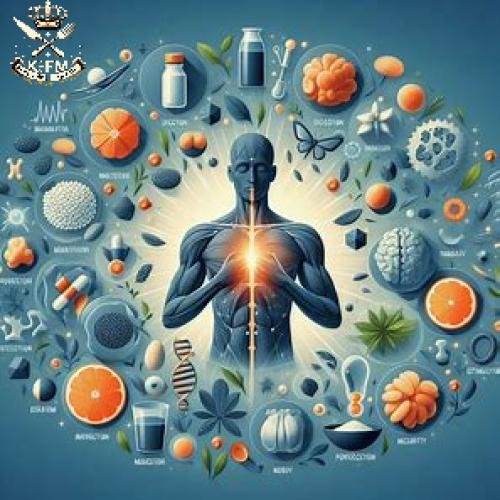Dates are a healthy staple food. In addition to being an excellent source of quick energy, dates contain a rich array of vitamins and minerals such as Vitamin B, potassium (which helps regulate blood pressure and maintain heart health), iron, and magnesium. These contribute to strengthening bone and muscle health and improving the functions of the nervous system. Dates also contain powerful antioxidants that protect cells from damage and reduce the risk of chronic diseases. They help improve memory and concentration. Therefore, it is recommended to consume dates to enhance mental abilities and improve overall health, especially for students who need nutritious food to support their cognitive skills.
Nutritional Value of Dates
Dates are rich in many essential nutrients, including vitamins, minerals, fiber, amino acids, and enzymes. These nutritional components make dates a complete food that meets the body's needs for vital nutrients.

Mineral Elements
Dates contain a variety of essential minerals, including phosphorus, potassium, and magnesium. These minerals play an important role in brain nutrition and memory strengthening, as well as in improving the functions of the nervous system. Additionally, these minerals support bone and dental health and help maintain the integrity of the heart and blood vessels.
Natural Sugars
Dates have a high content of natural sugars, exceeding 70%. These sugars provide a quick source of energy, making them an ideal choice for schoolchildren and students who need an energy boost during study sessions. The natural sugars in dates help improve mood and enhance attention and focus.
Health Benefits of Dates
Heart Health: More Than Just Beats
Potassium: This important mineral acts as a regulator of blood pressure. It helps dilate blood vessels, which reduces the strain on the heart and arteries. Additionally, potassium helps eliminate excess sodium from the body, a key factor in high blood pressure.
Fiber: Fiber works like a broom, cleansing the arteries of harmful cholesterol. It binds with cholesterol in the intestines and helps it exit the body, rather than being absorbed into the bloodstream. As a result, fiber reduces the risk of arteriosclerosis and heart disease.
Digestive Health: More Than Just Digestion
Fiber and Probiotics: Fiber not only serves as fuel for beneficial bacteria in the gut, but it also helps their growth and reproduction. These bacteria play a crucial role in digestive health, aiding in digestion, boosting the immune system, and preventing constipation. They also produce essential vitamins for the body.
Disease Prevention: A Protective Shield from Oxidation
Antioxidants: Dates are rich in antioxidants that fight harmful free radicals. These free radicals can damage cells and contribute to the development of chronic diseases such as cancer and heart disease. The antioxidants in dates help protect cells from this damage.
Bone Health: Building Strong Bones
Calcium and Magnesium: These two minerals work together to build strong and healthy bones. Calcium is the primary component of bones and teeth, while magnesium helps the body absorb and effectively use calcium.
In summary, dates are not just a delicious fruit but a complete food that offers comprehensive protection for our health. From the heart to the digestive system and bones, dates contribute to maintaining overall body health.
The Dangers of Overeating Dates:
Although dates are considered healthy and nutritious, excessive consumption can lead to some health problems. Dates are rich in natural sugars, which makes them a source of quick energy. However, eating large quantities of dates can lead to weight gain due to the high calorie content, especially if consumed in excess during periods of rest or inactivity. Additionally, it may cause a sudden spike in blood sugar levels, making it unsuitable for diabetics if not consumed in moderation. It is best to eat 3-7 dates daily to enjoy their benefits without affecting weight or blood sugar levels.

Ways to Consume Dates
Dates can be consumed in various ways, including:
- Fresh Dates: Eating dates in their natural form with milk is one of the best ways to benefit from their nutritional value.
- Eating Dates in the Morning: It is recommended to eat three, five, or seven dates in the morning before breakfast.
- Soaked Dates: Dates can be soaked in a cup of water or milk overnight and then consumed with the soaked water on an empty stomach in the morning.
- Date Syrup: Date syrup can be used as a natural alternative to honey, especially for breakfast.
Healthy Recipes:
Dates can be added to various healthy recipes, making them a part of your daily diet. Here are some ideas:
- Date Juice: Blend dates with milk or yogurt to make a nutritious juice.
- Healthy Desserts: Use dates as a sugar substitute in healthy desserts like maamoul or cakes.
- Date Dip: Prepare a mixture of dates and nuts to create a nutrient-rich dip.
Frequently Asked Questions:
- How many dates can I eat daily? It is recommended to eat 3-7 dates daily as a moderate amount to enjoy the benefits without increasing calorie intake.
- Are dates beneficial for diabetics? Yes, but they should be eaten in moderation as dates contain natural sugars. It's better to choose dates with a low glycemic index, like Ajwa dates, as they help raise blood sugar levels slowly.
- What is the difference between fresh and dry dates? Fresh dates contain more water and fewer calories compared to dry dates, which have a higher sugar content and can contribute to weight gain if consumed in excess.
- Can dates be eaten before bed? Yes, dates contain magnesium and tryptophan, which help with relaxation, making them a good choice before bedtime when eaten in moderate amounts.
- What is the best time to eat dates? It's best to eat them in the morning on an empty stomach, during Ramadan for iftar, or as a pre-workout snack to provide quick and balanced energy.
- Are dates beneficial for pregnant women? Yes, dates help facilitate natural labor, stimulate uterine contractions, and assist in replenishing lost blood after childbirth due to their iron content.
- Do dates help improve memory and concentration? Yes, dates contain potassium and antioxidants that improve brain function and enhance concentration and memory.
- Are dates beneficial for children? Yes, dates are a good source of energy and minerals and can be mashed and given to young children as a nutritious snack.
Conclusion: Dates are an essential food that should be included in the daily diet, particularly for schoolchildren and students. With their high nutritional value and numerous health benefits, dates are an ideal choice to enhance health and cognitive abilities. We recommend everyone include dates in their daily diet to enjoy their many benefits.




















